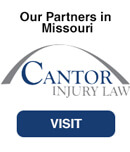Restaurant Workers Must be Cautious While Working in Commercial Kitchens
The restaurant industry includes many different types of services, such as fast food services and fine dining. Yet, everyone working in a commercial kitchen is at risk due to the many dangerous workplace conditions present. Commercial kitchens have the potential to cause serious work-related injuries and even death to workers.
Occupational health and safety officials as well as various industry groups have pointed out several areas of concern for restaurant operators regarding the safety and welfare of kitchen staff. It is important for restaurant workers to be aware of kitchen hazards in order to prevent workplace accidents and injuries.
What Injuries are Common Amongst Restaurant Workers?
The restaurant industry involves many hazards that are dangerous for workers, which can result in serious injuries. Some common injuries include the following:
Cuts and Lacerations
Sharp knives and food processing equipment can lead to cuts and lacerations. Butchering meat or slicing vegetables can be extremely hazardous. Slicers, choppers, and other food-cutting equipment should be outfitted with shields and blade guards to protect kitchen workers. Workers should be provided gloves strong enough to keep hands safe, as well as training on proper cutting and cleaning techniques.
Burns
Cooking involves heat, which can cause burn injuries. Risks from heat sources, like stoves or ovens, often cause these injuries to happen. Other appliances, like deep fryers, griddles, and warmers, all pose risks. Even the dishwasher uses heat, which can lead to an injury. Also, kitchen workers can be burned by handling hot cookware or liquids, such as grease or oils.
Workers should be provided with protective gear, including gloves, pot holders, and carts, to safely transport hot substances. Electrical burns can also happen, they are caused by smaller electrical appliances that may have damaged cords or wiring issues.
With lots of heat sources in constant use, restaurants present many fire hazards. In the event of a fire, restaurants should have fire control protocols in place. Fire management equipment, such as fire extinguishers, should be handy. Employee training should include fire safety measures and evacuation drills.
Chemical-Related Injuries
Chemicals present another danger in commercial kitchens. Commercial cleaners and sanitizers can become irritants for workers’ skin, eyes, and respiratory systems. Toxic exposure to these chemicals should be prevented with proper ventilation.
Overexertion Injuries
Overexertion is common in food prep and other restaurant work. Strains and injuries to the back, neck, and shoulders are common amongst servers carrying large trays of food. In the dining room, moving heavy tables into place can cause similar injuries. Relocating heavy objects or inventory can lead to strains.
Employers should provide back belts to any employee who is expected to move or lift anything heavy. Employees should also receive training on how to lift things with safety in mind. Wheeled carts and dollies should be made available to assist with these tasks. Restaurant employees should be afforded opportunities for breaks to avoid muscle fatigue and pain that can occur as a result of standing for too long.
Repetitive Motion Injuries
Another type of overuse injury that can cause muscle strain as well as nerve damage is a repetitive motion injury. For example, carpal tunnel syndrome is a wrist injury suffered by many servers who carry heavy trays in the same position all day long. A dishwasher constantly scrubbing at the sink can end up with the same issue. Repetitive motion can cause damage to muscles and nerves at the joints, such as wrists, elbows, ankles, as well as the neck and back.
Injuries from Slip and Falls
Many restaurant-related injuries can be attributed to slip and fall accidents that occur as a result of wet walking surfaces, which are common in kitchen areas where spills occur often. Slipping on wet floors can cause broken bones, serious back injuries, and head trauma. Restaurant employers should mitigate the risk of slippery floors by using non-slip mats and mandating non-slip footwear for all employees. Employees should be trained to clean up spills immediately and caution signs should be used.
Busy restaurant kitchens should be free of clutter to provide plenty of room for staff to safely do their work. A crowded and cluttered kitchen increases the chances of injuries and even fatalities. Walkways and paths between counters should be kept clear to allow busy cooks and servers to safely pass through one area to another. Older kitchens may have uneven floors, which causes tripping hazards. If there are uneven floors, the hazards should be marked to bring attention to the issues.
Is Workplace Violence Seen in the Restaurant Industry?
Unfortunately, restaurant workers are at risk for workplace violence from unstable patrons who take customer complaints too far and then commit crimes, such as robbery or even assault. A manager making a cash drop is also at risk of being held up by a gunman, which can cause serious injuries, post-traumatic stress disorder (PTSD), or even death. A physical or psychological injury resulting from such an altercation would be considered eligible for coverage under a Workers’ Compensation claim through the employer’s insurance carrier.
What Does Workers’ Compensation Cover?
A kitchen worker who becomes injured in a commercial kitchen is eligible to collect compensation from the company’s Workers’ Compensation insurance. This eligibility comes with a few requirements. First, the worker must be employed by the restaurant in order to qualify for compensation. An independent contractor or vendor doing work in the kitchen must seek other avenues for receiving compensation related to an accident, such as a vendor seeking a claim through their own company, or an independent contractor seeking a third-party lawsuit. The second requirement is that the injury must have been sustained in the course of performing required work duties.
When it comes to a Workers’ Compensation claim, there is no need to prove who is at fault for the accident. Workers’ Compensation insurance protects employers from liability suits, as well as protects employees from having their claims invalidated by their own negligence. Workers’ Compensation coverage will assist with the costs associated with injuries, including medical bills, lost wages, and possible disability issues. Workers’ Compensation also provides death benefits to surviving family members.
Additionally, many off-premise injuries are considered work injuries. A delivery person transporting food from the restaurant to a customer may be involved in a car accident. Since the delivery is part of the job, the delivery person’s injuries would be considered a workplace injury, even though the accident may have happened off restaurant property.
Third-Party Liability Claims
If a worker is not eligible for Workers’ Compensation for an injury, they may choose to go the route of a personal injury claim. Even if the worker is able to collect Workers’ Compensation through an employer, the worker may still have a legitimate claim against a third party if someone else was negligent in a way that led to the accident. For example, liability may lie with the manufacturer of defective equipment, which could be pursued in a third-liability claim.
How Can a Lawyer Help?
Whether a worker is having issues getting approval for a Workers’ Compensation claim or is looking to bring a suit against a liable party, an experienced lawyer can help prove a case. Such legal assistance can help with collecting evidence, filing paperwork, and other things necessary for a claim. For these reasons, it is important to seek legal representation after a work accident occurs.
Philadelphia Workers’ Compensation Lawyers at Gross & Kenny, LLP Represent Restaurant Workers Injured in Commercial Kitchens
The restaurant industry poses many risks. When workers are injured in commercial kitchens, they are eligible to collect fair compensation for their injuries. If you are an injured restaurant worker, one of our Philadelphia Workers’ Compensation lawyers at Gross & Kenny, LLP can help you today. For a free consultation, complete our online form or call us at 215-512-1500. Located in Philadelphia, we serve injured workers throughout Pennsylvania.



